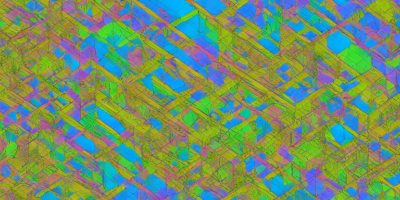In this article, we will delve into the realm of chemical reaction networks (CRNs) and their potential applications in synthetic biology. CRNs are a mathematical representation of the interactions between different species in a biological system, allowing us to study how these interactions give rise to complex behaviors. By leveraging CRNs, we can create more efficient and robust biological systems, with applications in medicine and beyond.
CRNs: The Building Blocks of Life
A CRN is a mathematical construct that represents the interactions between different species in a biological system. Imagine a party where different guests represent different species, and their interactions are governed by certain rules. These rules determine how the guests interact with each other, creating complex patterns of behavior. Similarly, CRNs represent the interactions between different species in a biological system, giving us insight into how these interactions give rise to complex behaviors.
Fully Connected Neural Networks: The Key to Intelligence
In this article, we explore the use of fully connected neural networks (FCNNs) as a tool for analyzing CRNs. FCNNs are a type of artificial neural network that can be used to model complex relationships between different species in a biological system. By using FCNNs, we can gain a deeper understanding of how these interactions give rise to intelligent behavior, and how we can design biological systems that mimic this intelligence.
Embedding Computation into the Cellular Environment
One of the key insights from this article is that CRNs are not just abstract mathematical constructs, but can be embedded directly into the cellular environment. By leveraging the natural computing capabilities of biochemical kinetics, we can design molecular computation modules that can perform complex computations within the context of the cellular environment. This has far-reaching implications for synthetic biology, as it allows us to create biological systems that can perform tasks that were previously thought impossible, such as recognizing complex patterns in biochemical signals.
Applications in Medicine: Disease Diagnosis and Beyond
The applications of CRNs in medicine are vast and varied. By leveraging the power of FCNNs, we can create biological systems that can diagnose diseases with unprecedented accuracy. But this is just the tip of the iceberg – CRNs have the potential to revolutionize the field of medicine as a whole, from drug discovery to personalized therapies.
In conclusion, CRNs are a powerful tool for understanding and manipulating complex biological systems. By leveraging FCNNs, we can gain a deeper insight into how these systems give rise to intelligent behavior, and how we can design biological systems that mimic this intelligence. The applications of CRNs in medicine are vast and varied, and have the potential to revolutionize the field as a whole. So, let us continue to explore the mysteries of CRNs, and unlock their full potential for the benefit of humanity.



